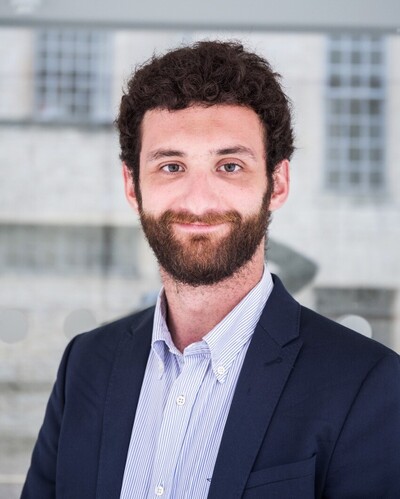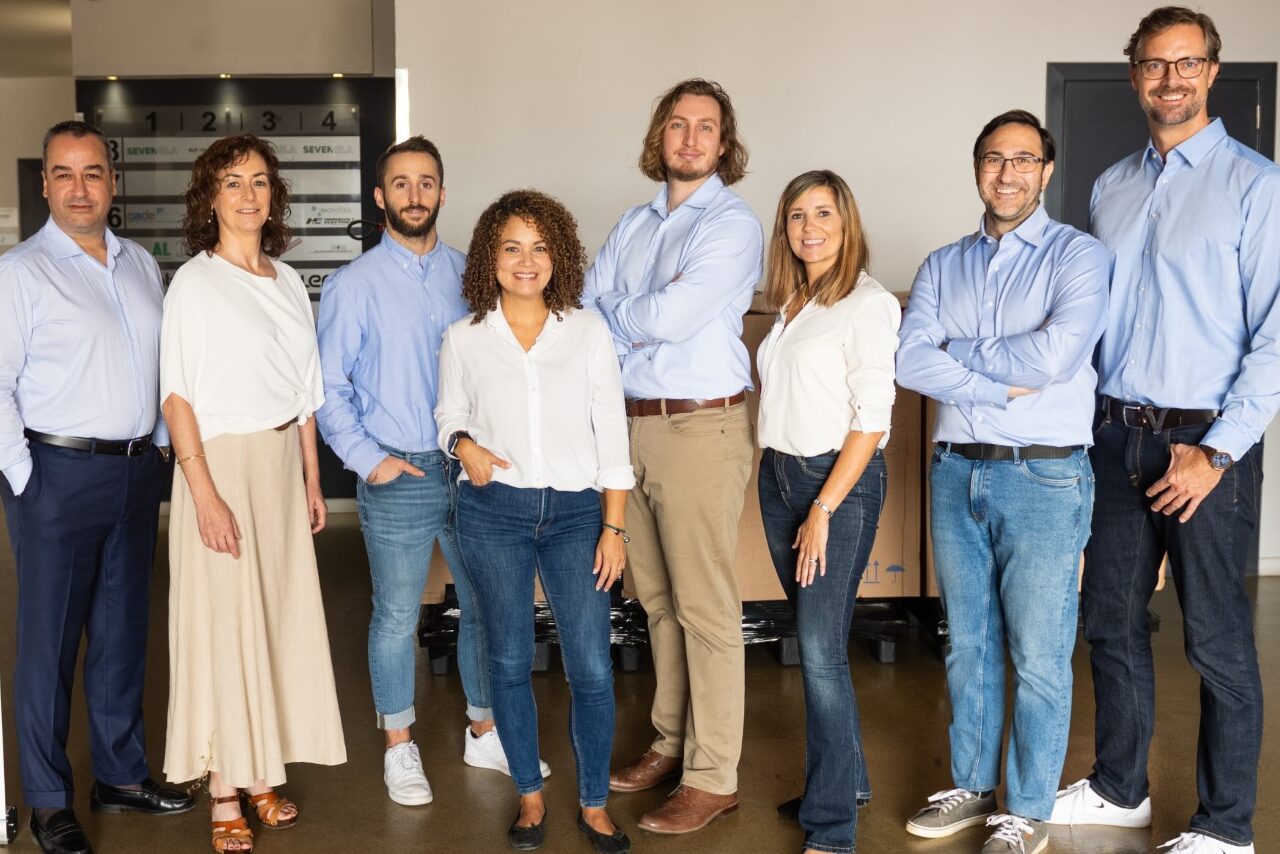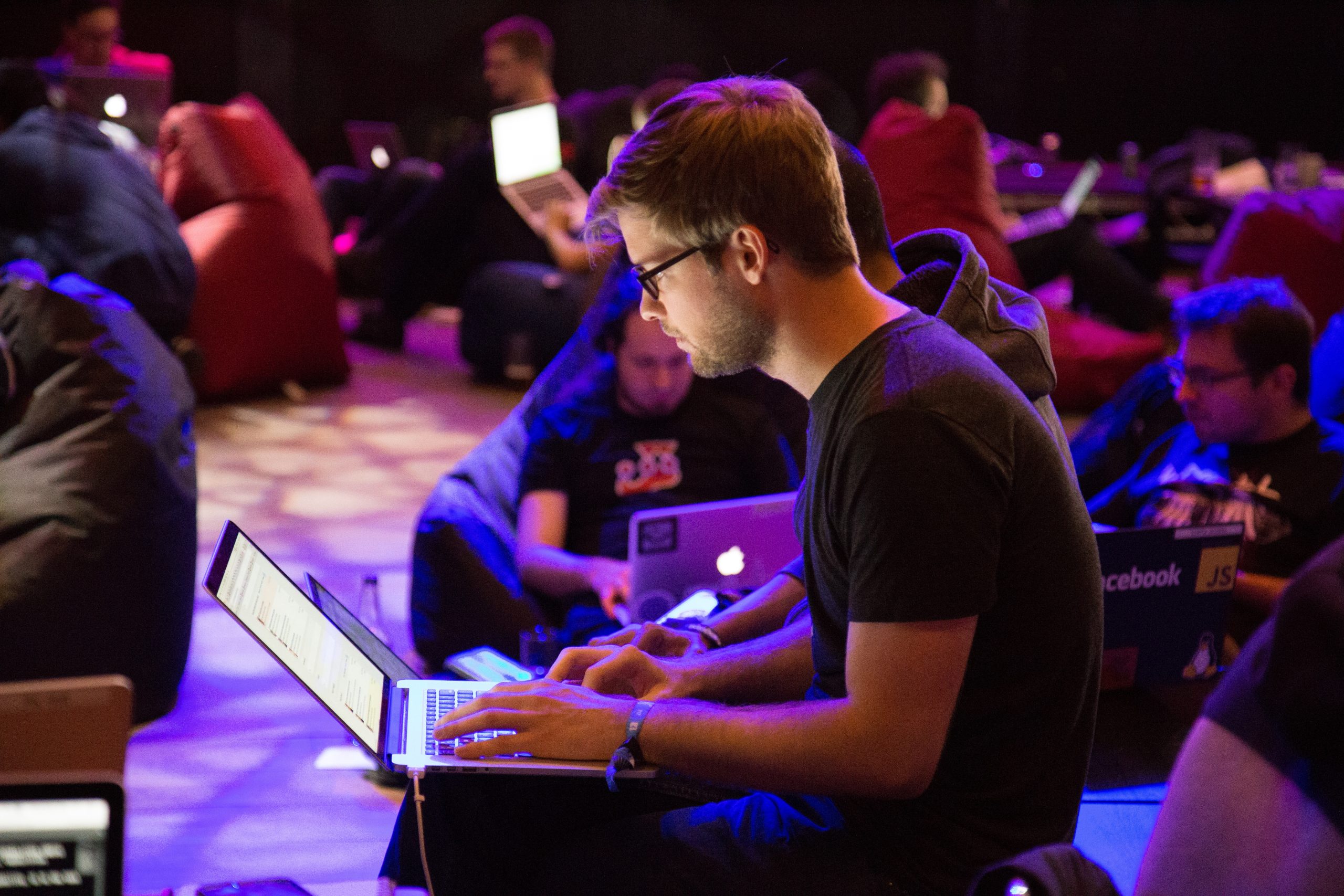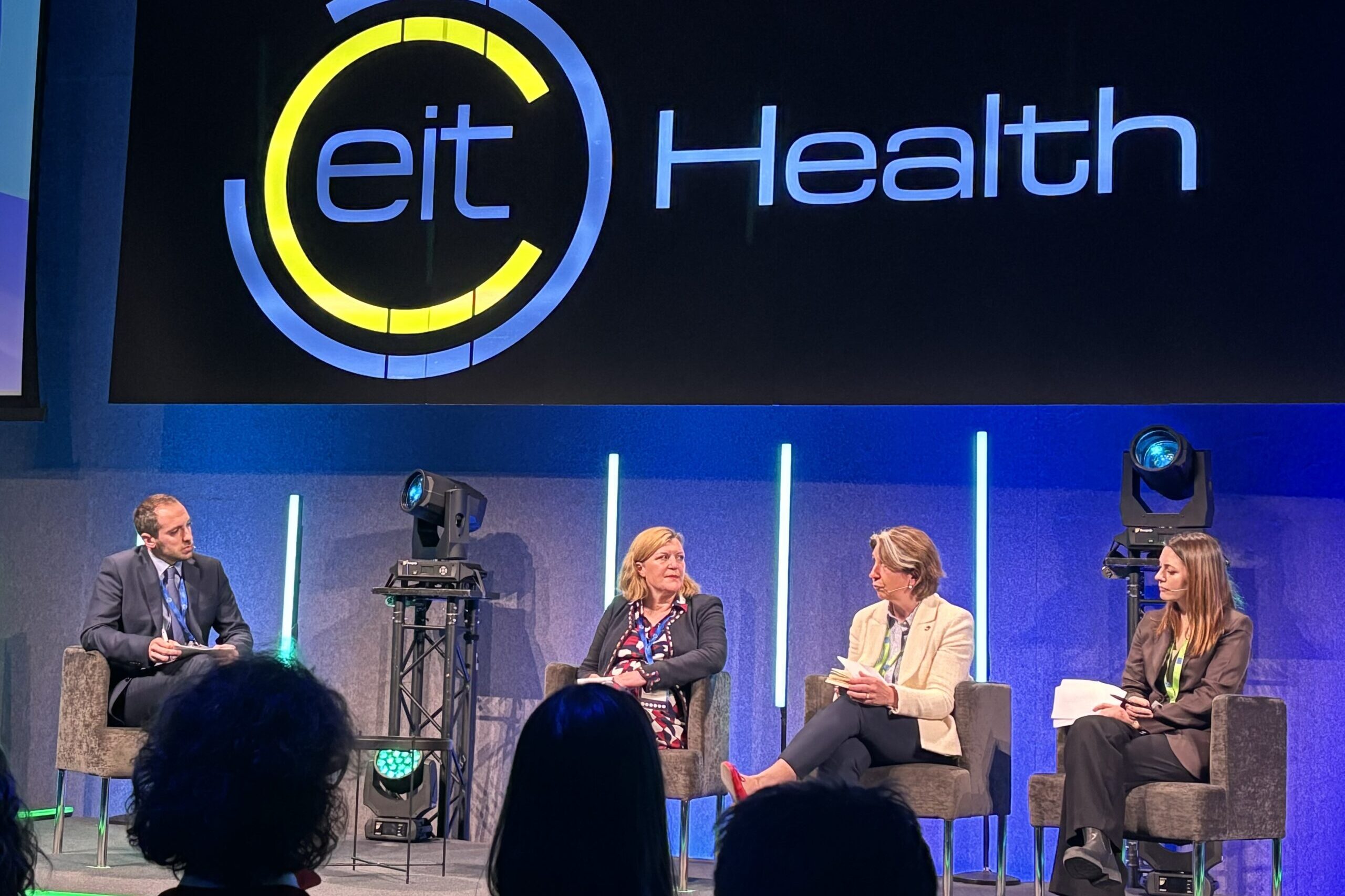26th May 2020

Martin Boutière étudie à Grenoble depuis 2013, d’abord à l’Université Grenoble Alpes (UGA), puis dans un programme de l’Ecole de Management de Grenoble (GEM), deux partenaires de EIT Health France, avant de suivre plusieurs programmes financés par EIT Health. Il raconte ce qu’il a acquis en termes de compétences et de connaissances à chaque étape.
Septembre 2017 – Février 2018 : 2ème année de Master “Innovation et Entrepreneuriat en Ingénierie Biomédicale” à l’Université de Barcelone.
L’objectif principal de ce master est de créer une nouvelle génération d’étudiants qui combinent une connaissance approfondie de la recherche, des questions techniques liées aux technologies de la santé, une forte capacité à comprendre et à explorer les aspects sanitaires, sociétaux et économiques des problèmes de santé, avec une large compréhension de l’innovation et de l’entrepreneuriat dans le secteur de la santé. De cette expérience, Martin raconte : “Cela m’a permis de combiner le monde de la recherche scientifique à celui de l’innovation et de l’entrepreneuriat. De plus, j’ai pu découvrir plus en profondeur de sujets que j’avais partiellement vus pendant mes études universitaires et ainsi améliorer mes connaissances dans le monde de l’innovation”. Martin est actuellement en stage de Master 2 au LBFA (Laboratoire de Bioénergétique Fondamentale et Appliquée) à Grenoble.
Août 2017 – Summer School à l’Institut scientifique européen (Archamps) : une approche systémique de la gestion des maladies chroniques (COPD).
Au lieu d’adopter l’approche traditionnelle au syndrome, CompMed adopte une approche systémique pour étudier les mécanismes sous-jacents des maladies chroniques. Des sessions théoriques et pratiques animées par des experts de premier plan sont suivies d’ateliers de conception pour nous introduire dans le monde de l’innovation et de l’entrepreneuriat.
Juillet 2018 – Summer School à l’Institut scientifique européen (Archamps) IBD4Health
IBD4health inclut des présentations professionnelles et de sessions informatiques pratiques s’appuyant sur un ensemble de données médicales réelles sur l’obésité. Une série de sujets et de questions liés à des données importantes sont explorés, notamment l’approche systémique, les interfaces utilisateurs, l’analyse de modèles, l’auto-quantification, l’apprentissage machine… L’objectif est de co-concevoir un projet d’innovation centré sur le patient et l’utilisateur qui est présenté à un groupe d’experts issus de l’industrie, du monde universitaire, des start-ups et des incubateurs d’entreprises.

Au sujet des Summer Schools Martin déclare : “Elles représentent une expérience dans le domaine de la santé ou de la R&D, ou le premier pas sur la voie de l’entrepreneuriat. Aussi, elles constituent des opportunités uniques de sortir de l’environnement académique et de relever le défi de l’innovation pour la santé. Ce qui m’a intéressé, c’est de créer, de concevoir une idée de start-up avec une équipe comprenant des personnes du monde entier et de différents horizons (pas seulement scientifiques). Cela nous permet de découvrir de nouvelles cultures et d’apprendre à combiner nos connaissances dans des domaines différents pour construire un projet commun, tout en étendant notre réseau à travers le monde”.
5 octobre 2018 : Atelier des étudiants du Master d’innovation technologique en santé EIT Health
« Cet atelier m’a permis de découvrir des personnes qui ont eu le même parcours que moi, et qui ont connu des évolutions différentes (doctorat, création de start-up, les deux à la fois, travaillant dans le monde de l’industrie ou du public). »
Février 2018 – Août 2018 : stage de master 2 au LBFA (Laboratoire de Bioénergétique Fondamentale et Appliquée) à Grenoble.
Le sujet du stage était : « l’apport protéique en cancérologie favorise-t-il la croissance des tumeurs et/ou limite-t-il la malnutrition ? » Ce sujet lui a permis de poursuivre les connaissances acquises à Barcelone, car il s’agit d’un sujet d’actualité, d’un problème avéré observé dans la pratique clinique, et avec un manque de données dans la littérature. De plus, il s’agit d’un projet novateur qui peut être réalisé d’un point de vue entrepreneurial.
C’est pourquoi, Martin a décidé de poursuivre son doctorat dans ce laboratoire et sur ce sujet. La partie principale de sa thèse consiste à développer un modèle pré-clinique de nutrition entérale (nécessitant une chirurgie) dans le cancer et la chimiothérapie. « En parallèle, nous développons une plateforme de recherche basée sur ce modèle et cette chirurgie. Le savoir-faire nous permettra de valider nos concepts de formulation et ils seront ensuite brevetés (aucune communication n’a jamais été faite), avec pour objectif ultime de créer une nutrition qui nourrit correctement le patient et non la tumeur. C’est un thème qui intéresse l’ensemble du marché mondial de la nutrition clinique car il y a peu de concurrence car il y a un savoir-faire très spécifique (seulement 2 laboratoires dans le monde, le LBFA, et un autre qui a arrêté ces recherches suite à une retraite). L’ensemble du monde hospitalier est également concerné car des soins nutritionnels appropriés réduisent les complications et donc les coûts des soins hospitaliers pour des maladies telles que le cancer, qui sont de véritables problèmes de santé publique. »

C’est une idée de plateforme que Martin a pu améliorer, développer et présenter à Oxford en août 2019. Il a participé à un « PhD Translational Fellowship Program Training Camp ». Il s’adresse aux doctorants intéressés par l’entrepreneuriat en leur fournissant les moyens nécessaires pour passer d’une idée à un concept réel dans le domaine des technologies de la santé, en fonction des besoins de santé, de l’impact potentiel, des méthodes d’innovation tout en étant accompagnés par des professionnels d’horizons divers. « Cela m’a permis de continuer à développer le projet de plate-forme de recherche sur le modèle de nutrition entérale qui est en cours d’élaboration, et d’avoir une meilleure vision de la manière d’amener un modèle de recherche expérimentale à une idée d’innovation et de le transformer en une start-up. Être sélectionné pour Oxford apporte une subvention de 5000 euros pour pouvoir initier les premières étapes et commencer à développer réellement le projet. »
Photos © Martin Boutière / Jonathan SELF
Martin, a student at the heart of the programmes supported by EIT Health
Martin Boutière has been studying in Grenoble since 2013, first at the University Grenoble Alpes (UGA) and then in a program with Grenoble Ecole de Management (GEM), two EIT Health France partners, before following several programs funded by EIT HEalth. He recounts what he has gained in terms of skills and knowledge at each stage.
After studying biotechnology with a specialization in “health” at UGA, an interdisciplinary training in life sciences and biotechnological engineering, he went on to complete a “Master’s degree in Health Engineering, Science and Management of Biotechnology (SMB), a scientific master’s degree to deepen his knowledge in the field of medical engineering and raise awareness of the business world and the valorization of research via a partnership with GEM.
Martin furthered his career in other long or short programmes, supported by EIT Health.
September 2017 to February 2018 – 2nd year of the Master degree “Innovation and Entrepreneurship in Biomedical Engineering” in Barcelona University.
The main objective of this Master’s degree is to create a new generation of students who combine an in-depth knowledge of research, technical issues related to health technologies, a strong ability to understand and explore the health, societal and economic aspects of health problems, with a broad understanding of innovation and entrepreneurship in the health sector. From this experience, Martin remembers: “This allowed me to mix the world of scientific research with that of innovation and entrepreneurship. In addition, I was able to discover in greater depth new subjects that I had partially seen during my university studies and thus develop and improve my knowledge in the world of innovation ». Martin continues a master 2 internship at the LBFA (Laboratory of Fundamental and Applied Bioenergetics) in Grenoble.
August 2017 – Summer School in European Scientific Institute (Archamps) Compmed biohc:
A system approach to the management of chronic disease (COPD).
Instead of taking the traditional approach to the syndrome, CompMed takes a systems approach to studying the underlying mechanisms of chronic disease. Theoretical and practical sessions delivered by leading experts are followed by design workshops to introduce us to the world of innovation and entrepreneurship.
July 2018 – Summer School in European Scientific Institute (Archamps) IBD4Health
IBD4health is a mix of professional presentations and hands-on computer sessions using a set of real medical data on obesity. A range of topics and issues related to important data are explored, including systems approach, user interfaces, model analysis, self-quantification, machine learning… The objective is to co-design a patient- and user-centred innovation project that is presented to a group of experts from industry, academia, start-ups and business incubators.
Martin concludes on the Summer School: “ They are an experience in the health or R&D field, or the first step on the road to entrepreneurship and unique opportunities to step out of the academic environment and into the challenge of innovation for health. What interested me is to create, conceive a start-up idea with a team including people from all over the world and with different backgrounds (not just scientific). This allows us to discover new cultures and learn how to mix our different knowledge in different fields to build a common project, while expanding our network around the world.”
5 October 2018 – 1st EIT Health – Master of Technological Innovation in Health Students Workshop. This workshop allows you to discover people who have had the same background as me, and who have had different evolutions (PhD, creation of start-ups, both at the same time, working in the world of industry or the public).
February 2018 to August 2018: Master 2 internship at the LBFA (Laboratory of Fundamental and Applied Bioenergetics) in Grenoble.
The subject of the internship was: does the protein intake in cancerology promote tumor growth and/or limit malnutrition? This subject allowed him to continue the knowledge acquired in Barcelona, because it is a current topic, a proven problem observed in clinical practice, and with a lack of data in the literature. Moreover, it is a project that is innovative and can be carried out from an entrepreneurial point of view.
This is why, Martin, decided to pursue his PhD in this laboratory and on this subject. The main part of his thesis is to develop a pre-clinical model of enteral nutrition (requiring surgery) in cancer and chemotherapy. In parallel, we are developing a research platform based on this model and this surgery. The know-how will allow us to validate our formulation concepts and then they will be patented (no communication has ever been made), with the ultimate goal of creating nutrition to properly nourish the patient and not the tumor. This is a theme that interests the entire clinical nutrition market worldwide because there is little competition because there is very specific know-how (only 2 laboratories in the world, the LBFA, and another that has stopped these manipulations following a retirement). The entire hospital world is also concerned because appropriate nutritional care reduces complications and therefore the costs of hospital care for diseases such as cancer, which are real public health problems.
This is a platform idea that Martin was able to improve, develop and present at Oxford in August 2019. Oxford was a “PhD Translational Fellowship Program Training Camp in Oxford”. It is made for doctoral students interested in entrepreneurship by providing them with the necessary means to go from an idea to a real concept in the field of health technologies, based on health needs, potential impact, methods of innovation while being accompanied by professionals from a variety of backgrounds. This allowed me to be able to continue developing the research platform project on the model of enteral nutrition that is currently being developed, and to have a better vision of how to bring an experimental research model to an idea of innovation and how to transform it into a start-up. Being selected for oxford brings a grant of 5000 euros to be able to initiate the first steps and start to really develop the project.
MOWOOT secures over €2M from Next Generation funds

Learn how EIT Health accelerated their journey.
Join the heartbeat of healthtech in Munich this June

Discover the third annual health.tech conference.
Health experts make recommendations on EHDS implementation

Discover our new Think Tank report.